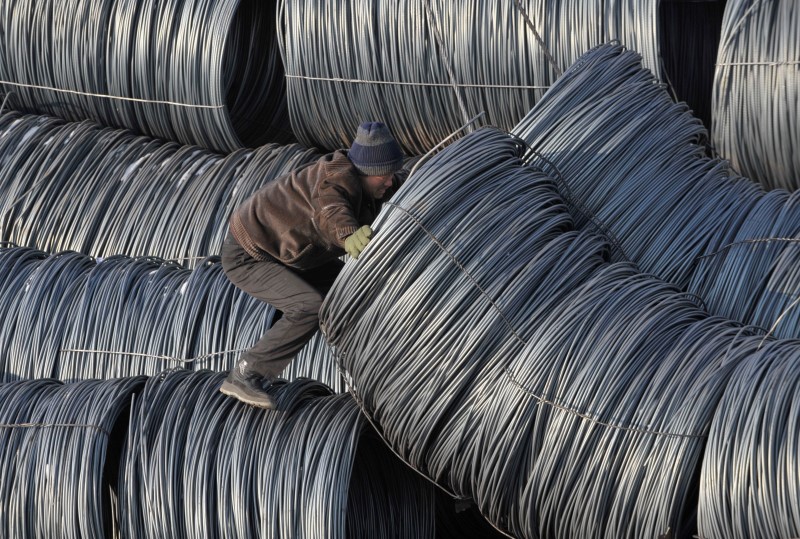By Maytaal Angel
LONDON (Reuters) - The European Commission is expected to further strengthen its steel trade defences, possibly as early as October, industry leaders say, as a global trade war in the alloy intensifies and imports keep flooding into the bloc.
The Commision has ramped up trade defences over the past year, slapping anti-dumping duties on products like reinforced bar, cold-rolled carbon steel and cold-rolled stainless steel, ranging between 18.4 and 25.3 percent for imports from China.
Despite that, carbon steel imports in the year to May rose 21 percent, with China now representing 27 percent of total imports, while stainless steel imports rose 17 percent over the period, EU data shows.
"The European Commission know they'll have to act because too many other agents of this planet are fencing off borders," Voestalpine (VI:VOES) Chief Executive Wolfgang Eder said in a conference call with reporters.
Eder, also chairman of World Steel Association, expects to see more "efficient and effective" measures in place this autumn, saying that duties in the region of 20 to 30 percent would go some way to helping the industry.
A European Commission spokesman declined to comment on future trade defences measures.
China, which produces half the world's 1.6 billion tonnes of steel, has struggled to reduce its estimated 300 million tonne overcapacity, and rising prices
But Beijing denies its firms are dumping or selling steel at below fair value. It says global steel overcapacity is due to the collapse of demand after the 2008 financial crisis.
Countries from Asia to the Americas disagree. The U.S., in the midst of an election year, has slapped duties of up to 450 percent on some Chinese steels.
Still, industry representatives say they are not advocating U.S. style protectionism, but that the EU's renewed determination to protect steelmakers is encouraging.
"A full-fledged war on steel is now ongoing with China," said an EU official familiar with the bloc's steel sector plans.
The crunch point could come in October, when the EU might cut the time frame for imposing duties from nine to seven months, and water down or scrap the 'lesser duty rule', which severely limits tariff levels.
"There's been a shift in understanding amongst EU members which we welcome, but we would call on them to do more to efficiently and effectively defend the industry," a spokesman for European steel association Eurofer said.
The EU is scheduled to rule on preliminary anti-dumping duties on plate and hot rolled coil from China in November.
Industry representatives expect a positive ruling, adding that besides the renewed EU drive to protect steelmakers, Britain's vote in June to leave the EU should free the bloc's hand.
Britain was one of a small minority of countries that opposed duties due to concerns about potential retaliation from Beijing.
"Following (Britain's) EU referendum, we see a very high potential for the EU to politically favour domestic steelmakers," Berenberg analyst Alessandro Abate said.
The Commission has 37 anti-dumping and anti-subsidy measures in place for steel products, 15 of them concerning China.
